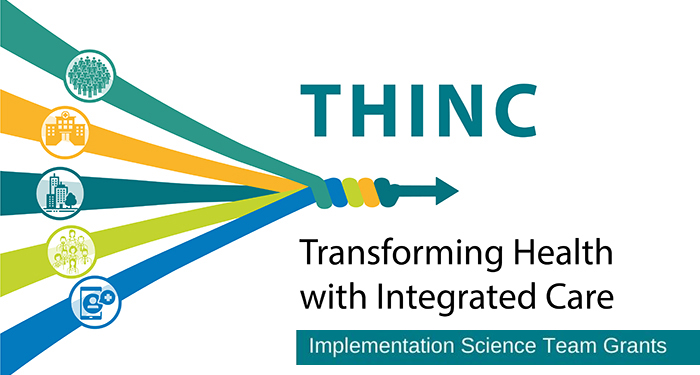NICE
The Network for Integrated Care Excellence (NICE) Canada Knowledge Mobilization Hub
Health systems have become out of step with the growing need for continuous longitudinal care across many different providers for individuals with complex health and social care needs. Serving their health-related needs requires integrating services across providers and over time.
IHSPR has funded the Network for Integrated Care Excellence (NICE) Canada; a pan-Canadian research team to act as the Knowledge Mobilization Hub for the Transforming Health with Integrated Care (THINC) initiative. Over the period from 2024 to 2028, NICE Canada will tie together the multiple THINC projects to ensure that the new knowledge is amplified and impacts on the delivery of care across Canada.
OBJECTIVES
- Foster coordination, shared learning, and collaboration across THINC grantees and knowledge user communities.
- Support capacity development in domains critical to the success and impact of THINC grantees and knowledge user communities.
- Amplify and evaluate the collective impact of THINC projects towards achieving Quadruple Aim goals and health equity.
- Lead initiative-wide KM and evidence support activities to bolster the dissemination, translation and equitable uptake of evidence related to integrated care.
Supporting transformation toward person-centred integrated health systems
IMPACT
The potential impact of the NICE Canada knowledge mobilization hub is expected to be meaningful, widespread and substantive. It will ensure that the THINC program achieves more than the sum of the individual components and individual research projects.
NICE Canada will develop and support an initiative-wide learning community, amplify KM activities, foster collaboration, build capacity, and advance collective impact across the THINC initiative components.
EQUITY
We attend to issues related to sex, gender, equity across many dimensions, NICE Canada also supports an Indigenous-led self-determined parallel and intersecting community.
Equity is also embedded in the implementation science framework.
IMPLEMENTATION
The equity-focused implementation research (EquIR) framework is used to assess equity-focused definitions of each of Proctor and Peters’ eight implementation outcomes: acceptability, adoption, appropriateness, feasibility, fidelity, implementation cost, coverage and sustainability to assess the translation of THINC research into practice.
THINC: Transforming Health with Integrated Care

Coordinating care and services around people’s needs to improve quality and outcomes
The CIHR Institute for Health Services Research (IHSPR) Transforming Health with Integrated Care (THINC) initiative aims to improve our understanding of how to implement, evaluate, adapt, spread and scale evidence-informed integrated care policies and interventions. IHSPR has funded upwards of 100 grants within the THINC initiative.
THINC focuses on system innovations aiming to:
- Improve continuity and coordination of care across the life course,
- Encompass intersectoral collaborations beyond the health care delivery system,
- Reflect the complexity and multimorbidity of people’s health needs and,
- Maximize population health and equity for all.
